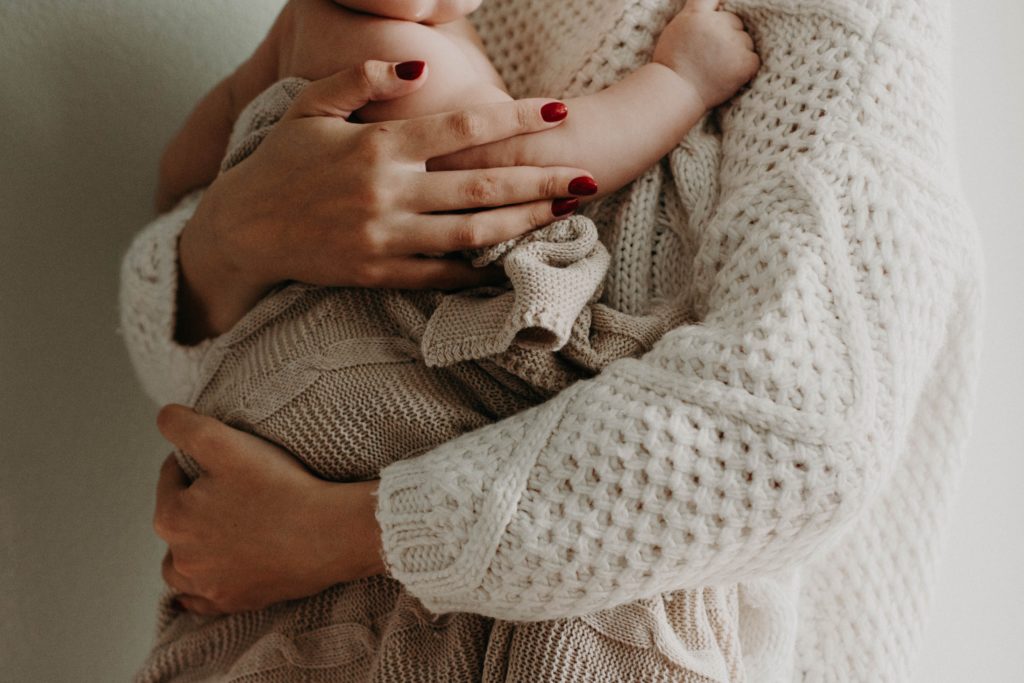As a new mum, support networks are vital
During Maternal Mental Health Awareness Week, we place a spotlight on how to find the right kind of pre- and post-natal support

Having a baby is one of the most wonderful moments of your life, but it can also be one of the toughest. It calls for a huge personal transition as every aspect of your life and body changes. Unsurprisingly, this can create a strain on your mental health.
For a long time, maternal mental health was a taboo subject. If it was mentioned, it was referred to with cutesy terms such as ‘baby blues’, suggesting that feeling low or depressed during pregnancy or after giving birth was par for the course and would soon pass. For mothers struggling with post-natal depression, attachment issues, suicidal thoughts or even post-partum psychosis, it can still be a difficult subject to raise.
Having a baby is a time in your life when everyone expects you to be happy, so admitting you are struggling mentally while nursing a babe in arms can make you feel as if you are not normal, that you are letting everyone down or even being selfish. There is also a fear – no matter how irrational it might be – that if you are deemed unable to cope, someone might take your baby away.
This can lead women to clam up. The Royal College of Obstetricians & Gynaecologists claim that one in five women develop a mental health issue during pregnancy or in the first year after the birth of their baby. However, in reality, the majority of women suffering don’t report it. Research by The Conversation found that 11% of women who had recently given birth had been clinically diagnosed with depression and 18% with anxiety. Yet of the mothers surveyed, 43% met the criteria for clinical depression and 61% for anxiety, they just hadn’t sought professional help.

It’s good to talk
These are some of the subjects that Maternal Mental Health Awareness Week, which runs from May 3rd to 9th, 2021, hopes to bring to light. By talking about the low feelings and pressurised scenarios that are all too real for new mothers, it hopes to encourage more conversations that might lead to healing and acceptance.
The theme of this year’s Week is ‘journey to recovery’, which was inspired by the number of women contacting the charity during the pandemic to seek support for pre-natal and post-natal mental health issues. As such, there will be a big focus on how women can get advice, find support groups and create better support networks.
Building a network around you is vital to good mental health during pregnancy and early motherhood. This can start close to home with a partner, friends and family. Often your loved ones will struggle with how much they should be around at this time, for fear of intruding or overwhelming you, but this can often lead new mothers to feel lonely and forgotten about. Be clear with your support bubble – let them know how you are feeling, whether you want visitors, and also don’t be afraid to set boundaries if it gets too much.
When a baby arrives, all the attention will naturally go to the new addition to the family. After spending nine months of your pregnancy being the one people have fawned over, this can be a sharp switch. It can lead to you feeling ignored and side lined – all of which can increase the feelings of anxiety, worthlessness or insecurity that are common among new mothers. Again, try to verbalise these feelings, as the last thing your friends and family will want to do is hurt you in this way unknowingly.

When to seek professional help
Sometimes talking to your immediate support network is not enough when you are struggling with your mental health. Just like at any other time in your life, the best thing you can do is seek support. Don’t be afraid to talk to your doctor or midwife about how you are feeling. They will have seen it a hundred times before, and won’t think less of you as a parent for it.
You can also seek out support groups. There are dedicated organisations such as The Association For Postnatal Illness, PANDAS Foundation and the Birth Trauma Association that offer support with pre-natal and post-natal mental health, as well as more specific outfits such as Maternal OCD for new mothers suffering obsessive compulsive disorders and Action on Postpartum Psychosis.
A major source of stress for new mums can be breastfeeding, and if you need help with this you can contact the UK National Breastfeeding Helpline, La Leche League, or the National Childbirth Trust. For advice on a sleepless baby – and parents – try charity Cry-sis, or if you are struggling to readjust to work after children, or feel your employer isn’t treating you fairly during maternity leave, speak to an expert at Maternity Action.
Local mother and baby groups can also be a huge support, and the lack of them during the pandemic has been taxing for new parents. These groups are a safe space where you can meet other mothers in the same position as you, and sometimes just a knowing ear coupled with tea and sympathy is enough to lift your spirits. You can find out about these groups from your local council, hospital or doctor’s surgery, as well as online. There are also virtual mother and baby groups offering everything from sensory classes to nursery rhymes, which can be a good alternative while Coronavirus restrictions remain in place.
The most important thing to remember this Maternal Mental Health Awareness Week is that no matter how lonely you might feel while struggling as a new parent, you are not alone, so don’t be ashamed to speak up and seek help.





